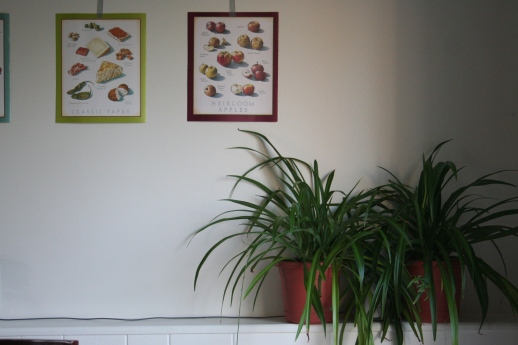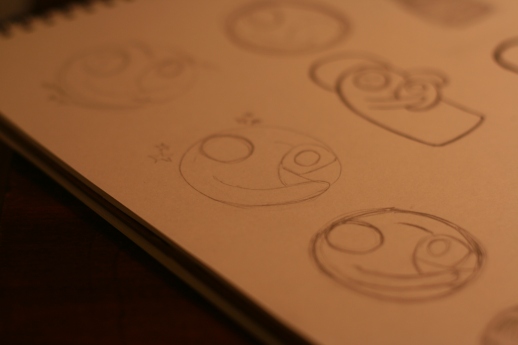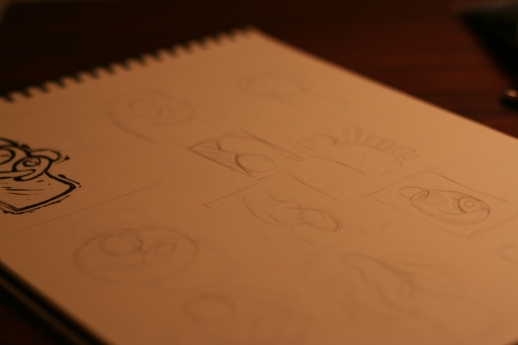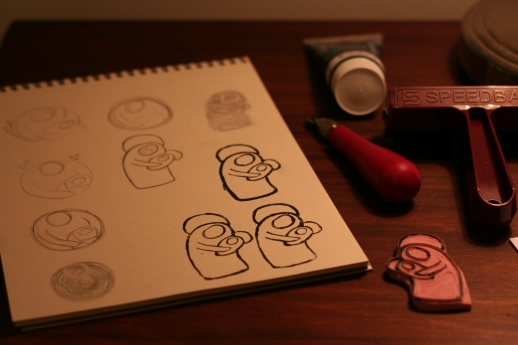Forsythia Root
writing, staying rooted, and receiving the generosity of the world
a prayer of confession after “how great thou art”

O Lord our God,
When we stop to consider all the works your hands have made,
We realize that we’ve fallen short.
We’ve neglected to sing of your greatness,
And we go about our days without even thinking you’re great.
Instead, we’re consumed with ourselves—
our greatness, the works of our hands.
For being self-absorbed, forgive us, Lord.
For thinking too highly of ourselves, forgive us.
We haven’t taken the time to wander through the woods,
nor hike the mountains you’ve surrounded us with.
Instead, we’ve stayed inside,
checking texts, mindlessly scrolling through Facebook,
or letting the TV drone on with the news or Netflix.
If we’ve gone outside, it’s to get to work or run an errand,
not to marvel at your creativity and extravagance.
For being too easily entertained, forgive us, Lord.
For being too busy to notice your handiwork, forgive us.
Father, You spared nothing—not even your Son—
And he gladly bore the burden of our sin.
But we aren’t so selfless.
We make intricate calculations
to get the most bang for our buck,
to ensure that if we give something to a neighbor, we get something in return.
And when you present us with an opportunity to bear another’s burden,
we give excuses about self-care and family time and being too introverted.
For hoarding the gifts you’ve given us, forgive us, Lord.
For leaving our neighbor to suffer, forgive us.
Would you do what it takes to get our attention?
Would you give us the energy and courage to care for the people you’ve put around us?
Make us humble, Lord, so that we bow down with adoration
and proclaim, “God, how great you are!”
We ask this is the name of your Son, Jesus.
Amen.
on sowing and reaping

When the Lord restored the fortunes of Zion,
we were like those who dreamed.
Our mouths were filled with laughter,
our tongues with songs of joy.
Then it was said among the nations,
“The Lord has done great things for them.”
The Lord has done great things for us,
and we are filled with joy.
Restore our fortunes, Lord,
like streams in the Negev.
Those who sow with tears
will reap with songs of joy.
Those who go out weeping,
carrying seed to sow,
will return with songs of joy,
carrying sheaves with them.
Psalm 126
Three years ago, I had just received a call back from the Reformed Church in America for an interview for an editorial position. It seemed like a good fit, and yet it ripped us away from all the plans we’d had—plans to copastor, plans for Dan to pursue what he thought God was calling him to. We moved in with Dan’s parents because our lease in Holland was up and we weren’t sure what was next. I was two months pregnant.
On my first day at the RCA, I learned that because our baby would be born six months after I started, I didn’t qualify for FMLA. I sobbed the whole drive back, apologizing to our baby for the abbreviated maternity leave. Talk about going out weeping.
Not quite two months after accepting the job, we spotted this duplex online. It was close to my office and the rent was reasonable, so we contacted the landlord. Eager to find tenants, he threw in a new washer and dryer, the first of many kindnesses. We moved in the next weekend.
Now, three years later, we’re moving back out and across the country to Seattle, where Dan has accepted a call as pastor of a church. Psalm 126 feels so fitting for today—sowing with tears, reaping in joy. These three years have been some of the hardest in our marriage. They’ve tested our faith in God, asked us to trust him when Kentwood, Michigan, has felt like exile. These years have humbled us.
And they’ve also been some of the richest. Our spunky Miriam was born IN THAT HOUSE! Our Greta with the big grin, though not born there, has come to know the play of light on the bedroom ceiling, the way the breeze blows through the living room. We’ve cooked meals in that kitchen (Dan, mostly), and accepted meals in the early newborn days. We’ve hugged people hello and goodbye on that awkward little landing between upstairs and down. We’ve fought some of our worst fights in those rooms, and we’ve filled them to bursting with love. We’ve cracked tiles and broken blinds (bye bye, security deposit!) and assembled cribs and sewn pair after pair of toddler pants. We’ve stood outside the bathroom door, waiting our turn and longing for a second bathroom (our new house has three and a half!). We’ve walked dozens of times to the park, learned the names of the plants along the way, grown from sitting on the grass to clambering up the rock climbing wall. We’ve greeted bunnies and robins in our backyard, tossed maple helicopters into the air and watched them fall to the ground.
Despite these years sometimes feeling like exile, the life lived during them was never paltry.
Our home was not a house with character by any stretch of the imagination, and it’s on the busiest road we could find, and yet it has held so much life in these three years. Today, we packed up our house so that Dan could pursue the calling he has dreamt about since eighth grade, and if that’s not restoring our fortunes, I don’t know what is.
We move, not filled with sorrow—although leaving the Midwest after three decades here is bittersweet—but filled with gratitude. Thank you, little white duplex. Thank you, suburban Kentwood. Thank you, Lord. You have done great things for us. We are filled with joy.
rare occasions

Dan and I used to take real pleasure in cooking together. It started back in college, when we, off our meal plans for the first time, were finding our way around the kitchen, discovering appliances beyond the microwave, looking up what to do with artichokes and beets. (This was the year of the vegetable parties and the year Dan bought me knives for my birthday. What a dream.)
The routine migrated with us to seminary, where, newly married, we were so busy with schoolwork that making meals became our time together. We’d set aside our books and laptops for an hour or so and crack open a cookbook and challenge ourselves to try something new, or to make it better than the last time.

We had a rhythm in the kitchen. You should have seen us make beef and broccoli. Or pizza—we had that down to a science: I’d knead the dough, he’d cook the sausage, I’d grate the cheese, he’d stir the sauce. We could have a pizza in the oven in no time.
These days, though, it’s a little trickier to cook together. These days, it’s more like: I feed the baby, he chops, he cooks, he stirs, he grates, he bakes, he plates. On very rare occasions, if she’s not hungry but insists on being held, he’ll take her and I’ll do the cooking, which is what led to these muffins. It’s good to be back in the kitchen.

Corn Muffins with Scallions and Cheddar
Adapted from Sally’s Baking Addiction and inspired by Good to the Grain
Like half of what I bake, I deviated from the recipe to accommodate my own cupboards. (Or, frankly, because I was halfway through pouring in the corn flour before I realized the recipe called for cornmeal, which we had run out of the week before.) I got the basic recipe from Sally’s Baking Addiction, but Kim Boyce assured me that I could manage with corn flour, and she inspired the scallion/cheddar combo. As I’m typing this, I’m imagining how delicious these would be with the addition of a cup of corn, too!
1 cup (120g) corn flour
1 cup (125g) all-purpose flour
1 tsp baking powder
1/2 tsp baking soda
1/8 tsp salt
1/2 cup (115g) unsalted butter, melted and slightly cooled
2 Tbsp olive oil
1/3 cup (67g) packed dark brown sugar
2 Tbsp honey
1 large egg, at room temperature if you remember
1 cup buttermilk (or my trusty hack: 1 tsp lemon juice + milk enough to make a cup)
handful of scallions, chopped (to make about 1/2 cup)
2 cups grated cheddar
Preheat oven to 425°F. Grease a 12-count muffin tin.
Whisk together the corn flour (or cornmeal!), flour, baking powder, baking soda, salt, and cheddar in a large bowl. Set aside. In a medium bowl, stir together the cooled melted butter, oil, brown sugar, and honey until completely smooth. Whisk in the egg until combined and then the buttermilk. Pour the wet ingredients into the dry ingredients and whisk until combined. Fold in the scallions.
Spoon batter into the muffin tin, filling each cup all the way to the top. Bake for 5 minutes 425°F, then, keeping the oven door closed, reduce heat to 350°F and continue baking for another 15 to 18 minutes, until puffed and golden.
These are best fresh with a hearty knob of butter, by they manage to taste pretty good on day two, too, reheated just barely.
but also, joy

Lest you think I go about my life drained and never filled, exhausted and never replenished, hear this:
my daughter brings me so. much. joy.
I realized this when I was tracking my health habits for a rewards program through our insurance company. One of the habits is laughing—a good belly laugh at least once a day. In 2015, I almost never recorded that I had laughed. Because I almost never laughed.
In 2016? I check that box every day.
This girl. It’s hard not to laugh with her. She chats with her koala buddies, who hang from her bouncy seat. She kicks up a storm when she’s naked on the changing table. She squawks cheerfully when we read Go, Dog. Go! to her. She wakes up, wide-eyed and ready to talk. She smiles when she’s supposed to be sleeping. She smiles when she’s sleeping: her little mouth moves, unaware of its expression, and lands in dreamy happiness.
Our hearts burst.
drained: a definition

Surely it was a nursing mother who first used the word “drained” to describe her exhaustion at the end of a day.
I’ve felt tired before; I’ve felt spent. But until now, I’ve never fallen into bed feeling weakened, empty, utterly void. Because I am. I am empty: I no longer carry a child within me. My belly is not round and full, it is hollow and flabby. All day long, my breasts are drained of their milk. I spend my days tending to this little life, so needy, unable to do a thing for herself. By the end of the day, the stopper has been pulled and all the energy just glug-glug-glugs right out of me. That’s when I lie in bed, my eyes half closed as I feed the girl, who is wailing and inconsolable and greedy as ever for milk, and tell her, “Honey, mama’s got nothing left.”

The sensation seems appropriate for the season. Lent: a season of self-giving, of self-emptying. Christ gave of himself, emptied himself, even to the point of death, in order to give us life. On a much smaller scale, I am emptied so my daughter might live.
I find myself identifying less with Christ, though, and more with a toddler my mom and sister saw while running errands once. The little boy, clearly worn out from the day, and apparently with a nearly-empty bottle, sighed to his mom, “I’m runnin’ outta energy—I’m runnin’ outta milk!”
advent week 4: peace

“Peace, peace,” they say,
when there is no peace.
—Jeremiah 6:14
Every evening, I lie in the tub and swirl Epsom salts through the water.
If I do not do this ritual, at 1 or 2 or 3 in the morning, my belly will seize up and wake me, getting progressively harder and then finally releasing, repeating over and over for hours. I will grow agitated and unable to fall back asleep.
So every evening, I lie in the tub and swirl Epsom salts through the water. My belly is a mountain above the water, a mountain that rolls and swells as if tectonic plates are shifting beneath it. The ground surges and shudders. No parts are distinct. It’s all a heaving, trembling mass.
Amiina plays and I close my eyes. I imagine our baby in her watery home while I lie in mine. She is nameless, faceless to me yet, as I am to her. She doesn’t know me as her mother; I’m just her environment.
I pray that she will love me, not as her home but as her home. I pray that she will not break my heart as daughters are wont to do to their mothers. And I pray that when she does, I will be as tender and gracious to her as my mother has been to me. I pray that in the midst of these restless days, this girl and I will come to terms with each other and ready ourselves to meet. May we grow into love.
[During Advent this year, my friend Matt and I posted weekly on the season’s common themes: hope, love, joy, and peace. You can read Matt’s final post at Pillar of Cloud.]
advent week 3: joy

[During Advent this year, my friend Matt and I are posting weekly on the season’s common themes: hope, love, joy, and peace. Read Matt’s latest post at Pillar of Cloud.]
I’ve written before on the elusive nature of joy. I could write more, or I could just say this: that’s what Advent is for.
Advent is for longing for the things that are not here yet. Advent is for praying for them, for trusting that God has not forgotten, for asking him to come soon with joy in tow. It’s so easy for me to wallow in the not-joy, but Advent isn’t for wallowing—it’s for waiting.
In a rare moment of sitting down at the piano, I came across this lovely song of Marty Haugen’s—My Soul in Stillness Waits. Of all the Advent songs I’ve sung this season, this one seems to capture best the active waiting—the asking—of Advent. (And that second verse! Man, it nails it.)
My Soul in Stillness Waits
For you, O Lord, my soul in stillness waits,
truly my hope is in you.
O Lord of Light, our only hope of glory,
Your radiance shines in all who look to you,
Come, light the hearts of all in dark and shadow.
O Spring of Joy, rain down upon our spirits,
Our thirsty hearts are yearning for your Word,
Come, make us whole, be comfort to our hearts.
O Root of Life, implant your seed within us,
And in your advent draw us all to you,
Our hope reborn in dying and in rising.
O Key of Knowledge, guide us in our pilgrimage,
We ever seek, yet unfulfilled remain,
Open to us the pathway of your peace.
advent week 2: love

This is the irrational season
Where love blooms bright and wild.
Had Mary been filled with reason
There’d have been no room for the child.
—Madeleine L’Engle
I am disheartened by the room that we are failing to leave for the child.
It’s Advent for goodness sake and I’ve heard nothing but vitriol and swagger from politicians and celebrities and—most heartbreakingly and frustratingly—religious leaders. Their blustering rhetoric has taken up all the space in the inn, forcing Christ out into the stable.
I suppose he’s used to it. Isn’t that, in some ways, the story of his life? From beginning to end, no one made room for him. The innkeepers took no pity on his mother, a woman obviously in labor. The other guests didn’t want to give up their rooms or disrupt their sleep. Everyone was too comfortable, too scared, too scornful to make room for Jesus.

Now imagine if Mary had felt the same way. If Mary had been filled with reason—or fear or hatred or bravado or any number of the other things that fill us these days—there’d have been no room for the child.
Bless you, Mary, for being filled with love. Bless you for your hospitality of the most intimate kind. Woman, you opened your body to a child. You submitted to nine months of the discomfort that comes from sharing your abdomen with another being. And then you gave your life over to being his mother. Thank you for your irrational love, which allowed Love himself to enter the world.

Before falling asleep last night, I read through my journal from earlier this year—from the months we were trying to conceive and the early months of pregnancy. Like Mary, we were not filled with reason. We had no idea what we were asking for (nor, frankly, do we now). We didn’t take into account the financial cost of raising a child, nor did we consider what an imposition she’d be on our relatively smooth life.
Instead, we were filled with bright-blooming, wild love.
My prayer is that the irrational season will overwhelm our nation. That we will let love do what it does: bloom brightly. That we will take the risk of making room.
[During Advent this year, my friend Matt and I are posting weekly on the season’s common themes: hope, love, joy, and peace. You can read Matt’s second post at Pillar of Cloud.]
Follow Blog via RSS
-
Search
-
Recent Posts
Categories
Archives
